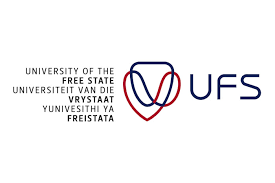University of the Free State scholar to attend the WHO Traditional Medicine G20 Health Ministers Global Summit
Prof Matsabisa Motlalepula, an African traditional medicine expert from the University of the Free State (UFS), will attend the first World Health Organisation (WHO) Traditional Medicine Global Summit in India in August after being invited to serve as a member of the Summit External Advisory Group for the WHO Traditional Medicine Global Summit (“Advisory Group”).
As chairperson of the WHO Regional Expert Advisory Committee on Traditional Medicine (REACT), Prof Motlalepula, the Director of the UFS Department of Pharmacology, has been nominated to serve as the Global Summit Advisory Group expert from the WHO to provide advice on themes, content, and format of sessions, and to provide reviews and recommendations to the Summit session coordinators and speakers at the Summit.
Summit will highlight success stories
The Advisory Group is comprised of nine members nominated across the six WHO regions and globally, with recognised expertise in traditional medicines as well as expertise on the Summit focus areas that include leadership and partnership, evidence and learning, data and regulation, biodiversity and sustainability, innovation and technology.
WHO will hold its Traditional Medicine Global Summit from August 17-18, 2023, in Gandhinagar, Gujarat, India, alongside the G20 health ministerial meeting. The Summit will be organised by the WHO Global Centre for Traditional Medicine collaborating closely with all WHO major offices.
The Summit will highlight success stories in countries using traditional medicine across universal health coverage, the Sustainable Development Goals (SDGs), and Health for All. It will showcase game-changing advances in evidence, data, biodiversity and innovations that enable the safe, effective and equitable use of traditional medicine. The Summit will be a platform for all stakeholders of traditional medicine, including policymakers, practitioners, academics, private sector, civil society, community representatives, and others will discuss health and traditional medicines issues.
WHO expert
“It is always an honour and privilege for me to be asked to avail myself to the activities of such high-level United Nations bodies. I am humbled to be identified and nominated by WHO to be amongst the nine experts in the six WHO regions and globally.
“I am very honoured and will do my utmost to deliver on the global mandate as well as stick to the terms of reference of my appointment to such a prestigious global summit. This shows the trust the WHO has in my capabilities, and this is good for the institution, the continent as well as the traditional health practitioners and scientists in this field of research,” says Prof Motlalepula.
Endorsing well-researched traditional medicines
He says each time he sees the involvement of Africa in these international gatherings on traditional medicines, it marks another step toward the institutionalisation and global acceptance of African traditional medicines and medical practices in health systems. It further shows the growing role UFS is beginning to play in the global arena around traditional medicines.
According to him, he will, as always, push for WHO to be an example in support of traditional medicines and the participation of traditional health practitioners in its activities.
“I would seek from WHO to look into endorsing well-researched traditional medicine products and making them available in our health systems. Secondly, making recommendations for review of medicines regulatory authorities to reform and look favourably at traditional medicines product registration systems. I would advise on supporting continuous research into traditional medicines but more importantly for those products to be registered and put on the market.”
Prof Motlalepula says he has a few expectations, always working hard, dedicating his time and efforts to delivering what is expected, being part of a team and contributing to the overall team efforts. He expects positive resolutions moving forward the development and institutionalisation of traditional medicines, as well as a commitment to see the acceptance that the contribution of traditional medicines plays in the well-being of people and its formal contributions to universal health coverage and SDGs acknowledged.
“I expect to hear about improved financial and political support for research and fast-tracking the manufacturing of well-researched, quality, safe and effective traditional medicines and their inclusion in national health systems. I expect to hear talk about integrated health that incorporates the application of traditional medicines in national health systems. I expect indeed a few positive things around the development of traditional medicine and serious commitment to supporting it.
“Given the scope of the work of the Advisory Group, it is very clear that the work is huge for the organisation, but I am ready for this,” says Prof Motlalepula.
The scope of work for the Advisory Group has been prepared and includes:
Providing expert advice to WHO on the technical content and format of the sessions and exhibition for the WHO Traditional Medicine Global Summit;
Agreeing on technical review criteria with respect to thematic coherence across the Summit, strength of evidence and data, methodologies, global relevance and other considerations;
Reviewing the proposed content of the Summit sessions and exhibitions using the technical review criteria and providing expert recommendations to ensure high-quality sessions;
Advising on the development of a journal series of papers related to the Global Summit using the agreed technical criteria to select the papers;
Providing expert inputs to Summit organisation meetings and multistakeholder consultations, as agreed with WHO;
Developing and sharing recommendations of the Summit advisory group with WHO and partners in a timely manner to inform the organisation of the Summit, as appropriate in alignment with the WHO conflict-of-interest declaration and Framework for Engagement with Non-State Actors (FENSA); and
Developing an Advisory Group report advising WHO on key lessons and priority actions following the first WHO Traditional Medicine Global Summit.

